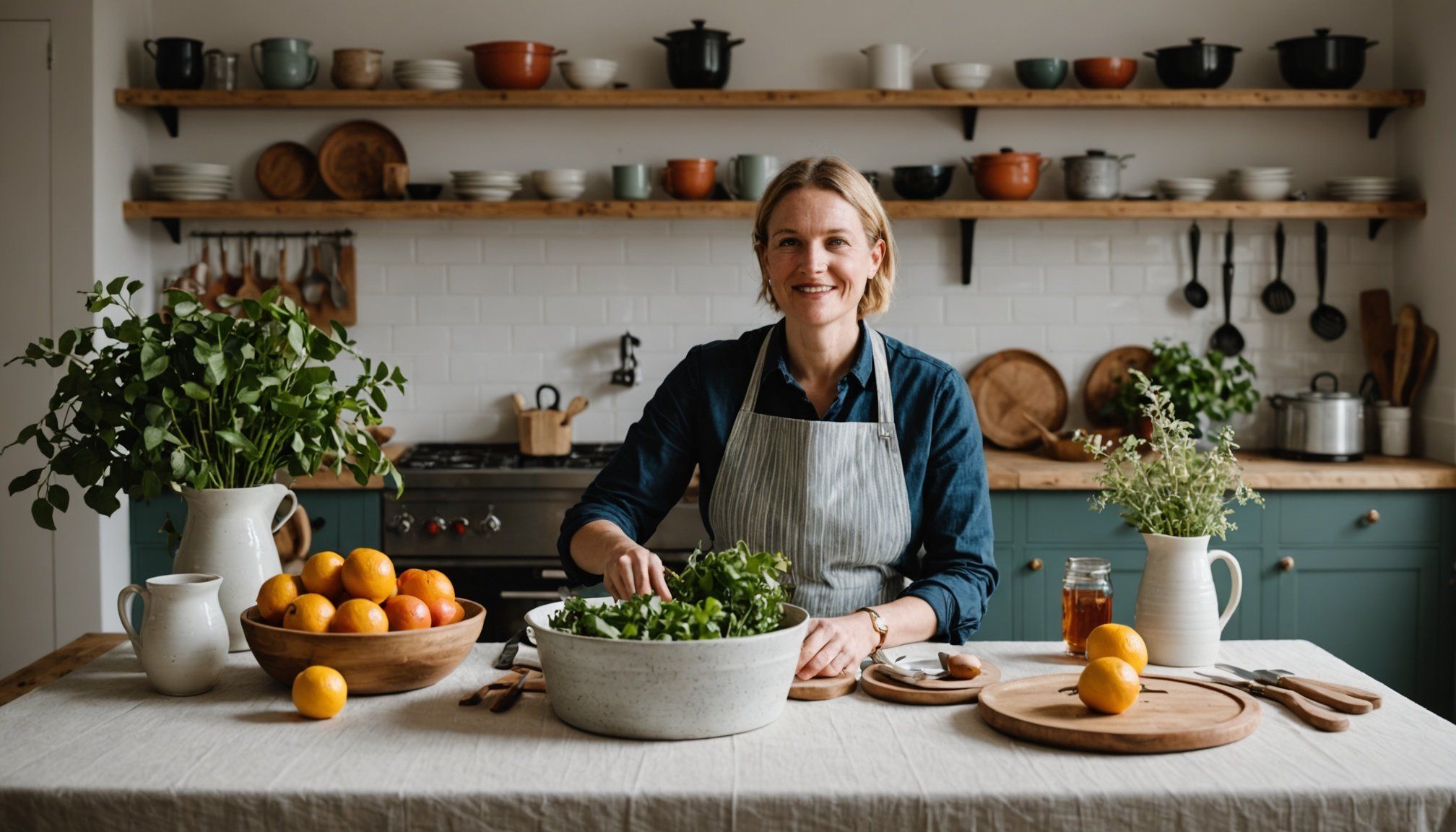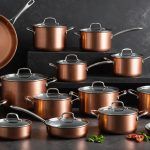Overview of Eco-Friendly Kitchen Textiles Revolution
The concept of eco-friendly kitchen textiles revolves around using materials and production methods that minimise environmental impact. This innovation is crucial for promoting sustainability in textiles, addressing concerns about waste and pollution. By prioritising renewable and biodegradable resources, manufacturers reduce their carbon footprint while maintaining product quality.
The market has witnessed a shift towards sustainability in textiles, driven by increasing consumer demand for environmentally friendly products. Consumers are becoming more conscious of the ecological impact of their purchases, opting for brands that reflect their values. As a result, there’s a burgeoning market for eco-friendly kitchen textiles, with growth projections indicating substantial expansion.
Also read : Essential & Long-Lasting Fabrics for Kitchen Aprons: A Comprehensive UK Cook’s Handbook
In the UK, innovative brands are at the forefront of this revolution, setting benchmarks for sustainable practices. These brands focus on utilising organic cotton, recycled materials, and low-impact dyes in their collections. Among them, several pioneers have gained recognition for their commitment to environmental integrity and product excellence. By offering diverse, high-quality kitchen textiles, they cater to a growing demographic that prioritises sustainability in household goods. This movement not only meets consumer demand but also inspires changes across the broader textiles industry.
Spotlight on Leading UK Brands
The UK boasts an array of UK textile brands that are celebrated for their commitment to sustainability. These sustainability pioneers have embraced eco-friendly practices, influencing the industry’s shift towards greener alternatives. Let’s delve into how these eco-conscious brands navigate the world of kitchen textiles.
This might interest you : Discover the Benefits of Copper Cookware for Your UK Kitchen: An Essential Guide!
Brand Profile: [Brand Name 1]
Established with a mission rooted in sustainability, [Brand Name 1] has revolutionised eco-friendly kitchen textiles. From the get-go, their founding values emphasised environmental responsibility, reflected in their use of organic cotton and sustainable fibres. These practices have significantly reduced the environmental impact while ensuring product longevity and quality.
Brand Profile: [Brand Name 2]
Known for its unique selling propositions, [Brand Name 2] stands out with its innovative product lines. Their notable innovations include biodegradable blends that maintain durability, catering to the needs of the environmentally-conscious consumer. Additionally, their dedication to community engagement and sustainability initiatives has cultivated a loyal customer base.
Brand Profile: [Brand Name 3]
Transparency and commitment to environmental standards are at the core of [Brand Name 3]’s ethos. This brand collaborates with notable environmental organisations to further sustainability goals. Their partnerships have not only elevated industry standards but also strengthened customer feedback and brand loyalty.
In-Depth Interviews with Founders
Gaining insights from brand founders interviews offers a unique perspective on the drive for sustainable kitchen textiles. These leaders provide valuable sustainability leadership and shed light on their experiences and visions.
Founder Interview: [Brand Name 1]
A conversation with [Brand Name 1]’s founder reveals the deep-rooted motivations behind launching their eco-conscious initiative. They talk about the substantial challenges faced when promoting sustainability, including navigating resistance to change and sourcing ethical materials. Insights from pioneers here highlight a firm commitment to authentic, sustainable practices and a clear vision for a greener future in textiles.
Founder Interview: [Brand Name 2]
Understanding inspirations and driving forces behind [Brand Name 2], the founder discusses strategies for consumer education on sustainability. They emphasize how vital it is to inform buyers about the impact of their choices. Furthermore, they offer budding eco-friendly entrepreneurs advice on tackling market entry barriers and cultivating consumer trust.
Founder Interview: [Brand Name 3]
Reflecting on experiences in navigating the sustainable market, [Brand Name 3]’s founder underscores the necessity of community involvement. They illustrate how grassroots engagement strengthens their brand. Their personal commitment to sustainability extends beyond business, advocating for broader environmental responsibility.
Sustainable Practices in the Industry
The adoption of sustainable textile practices in the industry is transforming how kitchen textiles are produced. These practices favour materials like organic cotton, hemp, and bamboo, known for their minimal environmental impact. These materials not only require fewer pesticides and water during cultivation but also decompose naturally, reducing long-term waste.
Brands are also integrating eco-friendly production methods, prioritising energy efficiency. Techniques such as waterless dye processes and solar-powered facilities exemplify efforts to minimise resource consumption. These methods lead to lower energy use and reduced greenhouse gas emissions, advancing sustainability goals.
A comprehensive lifecycle assessment of kitchen textile products is crucial in understanding their environmental footprint. This assessment evaluates each stage, from raw material extraction to end-of-life disposal, ensuring that sustainability is embedded throughout the product’s journey. Through these analyses, companies can identify opportunities for improvement and transition towards more circular economic models.
By combining environmentally-friendly materials with innovative production techniques, the industry is paving the way for a more sustainable future. As these responsible practices gain traction, they not only preserve ecosystems but also align with consumers’ increasing demand for eco-friendly kitchen textiles.
Consumer Trends and Market Insights
As consumer behaviour increasingly favours sustainable practices, eco-friendly kitchen goods have captured significant attention. Individuals today are more aware of the environmental implications of their choices, leading to a surge in demand for eco-friendly products. This shift in preference is driving brands to prioritise sustainable materials and transparency.
Market research highlights that consumers are willing to invest in goods that align with their values. The influence of eco-friendly branding plays a pivotal role in purchasing decisions. Brands that market themselves as sustainable and ethically responsible often see improved customer loyalty and trust.
Several market trends indicate a promising future for kitchen textiles. Predictions suggest continued growth as sustainability becomes integral to consumer culture. As more people seek eco-friendly options, there is potential for innovative solutions that further reduce the environmental footprint of household goods.
One notable trend is the rising importance of certifications and labels that authenticate sustainability claims. These indicators reassure buyers of the ecological benefits of their purchases. The market for eco-friendly kitchen textiles will likely expand as brands adapt to evolving preferences, driving industry-wide transformations. This evolution demonstrates the enduring impact of environmentally-conscious consumer behaviour.











